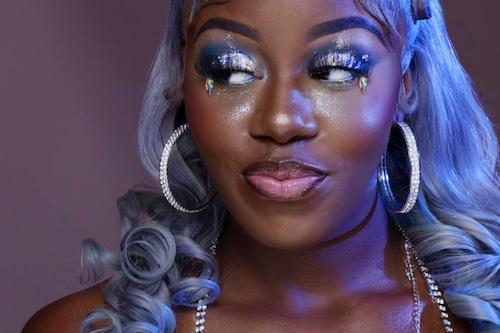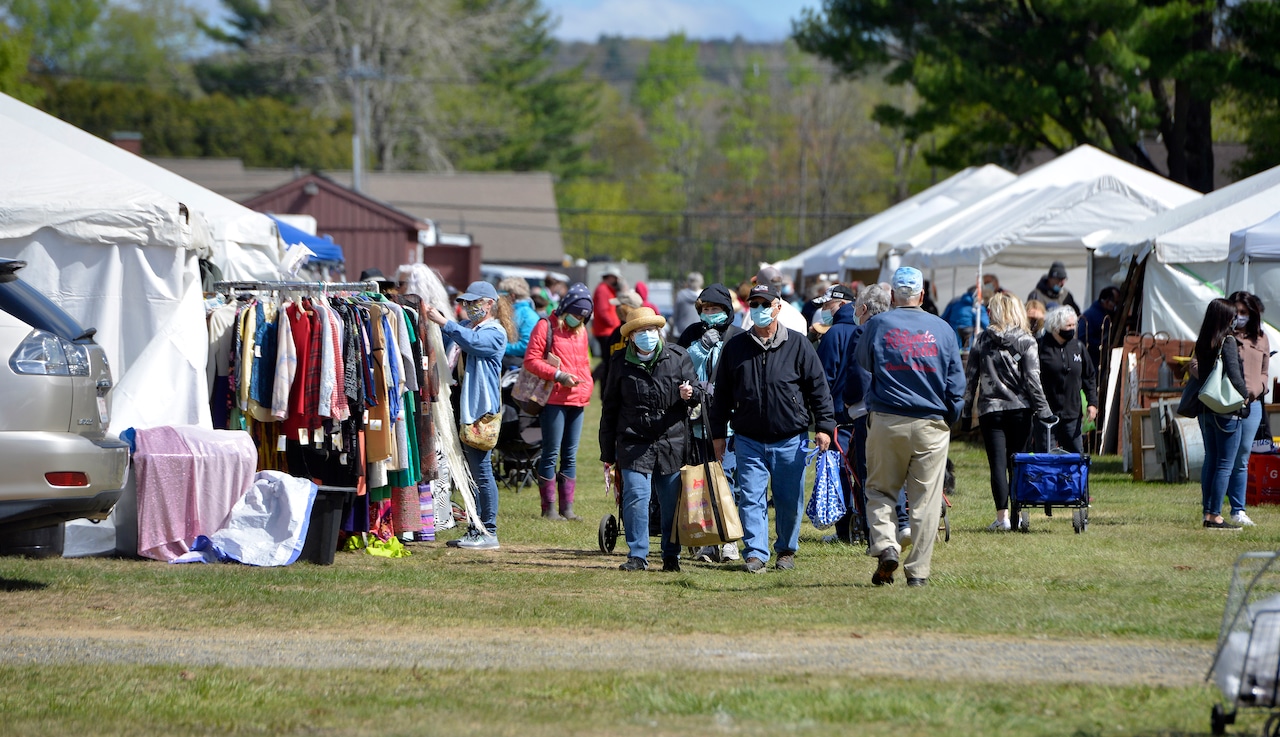The names and faces of revolutionaries and radicals of the past fill the walls of the Lucy Parsons Center in Jamaica Plain, but its collective efforts are greatly focused on the present.
Found on Centre Street, the faded red overhang outside sets straight what the business is, a collectively run bookstore that is also a 501(c)(3) nonprofit.
“It’s a free space where lots of organizations use our space for their public meetings, reading groups, stuff like that,” said bookseller and volunteer Magz, who asked to use a pseudonym to protect her identity. She asked MassLive not to name her or show her appearance out of fear that doing so would make her more easily identifiable and threaten her and the store’s safety from right-wing agitators and pro-fascist groups.
“The books are an important part of the space, of course,” she said. “We are committed to the documentation and education of the progressive movement in all its facets. The books are one way that we get to people and we love that these books circulate around the city, around the world, and we use the sale of those books to support our projects that are more than just your average bookstore.”
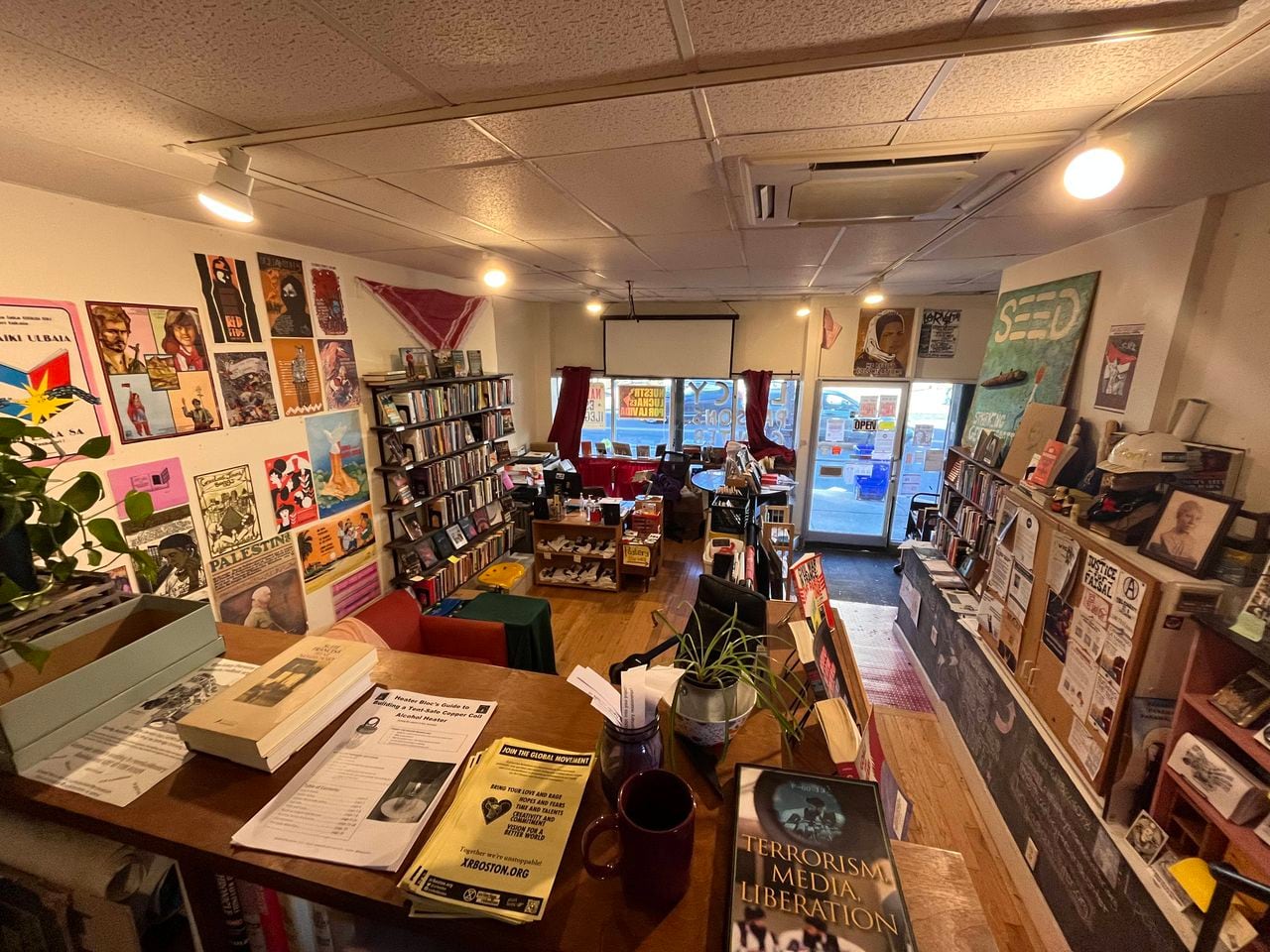
Books authored by journalist Eduardo Galeano and activists Angela Davis, Nick Estes and Naomi Klein, among the many books that cover social justice and radical thought, can be found at the Lucy Parsons Center in Jamaica Plain. Ryan Mancini/MassLiveRyan Mancini
The bookstore entered Magz’s orbit in mid-2021 after moving back into Boston. When her then-roommate was part of the core strategic team, inviting her “kind of off the cuff,” she said.
She attended a training session for new volunteers and found a purpose — all after she initially thought “Sure, why not?”
The store is named after former enslaved person, anarchist journalist and labor organizer Lucy Parsons. Born in Virginia in 1851, she married Albert Parsons, a former Confederate soldier — “I know, wild story!” Magz said.
The two became journalists and covered the growing labor movement in the late 19th century.
“She continued to be a prolific, largely anarchist-leaning organizer,” Magz said. “She was chosen as the namesake of the space because she worked with all kinds of people on all kinds of social issues. She was absolutely not a reformist, but she worked with people across political lines for the social struggles that needed the labor.”
A bust and photos of Parsons stand on store shelves as a tribute to her legacy. The store itself, originally called Red Books when it opened in 1969, was named after Parsons “as a nod to that desire to work with all kinds of people, (and) for her political approach to organizing,” Magz said.
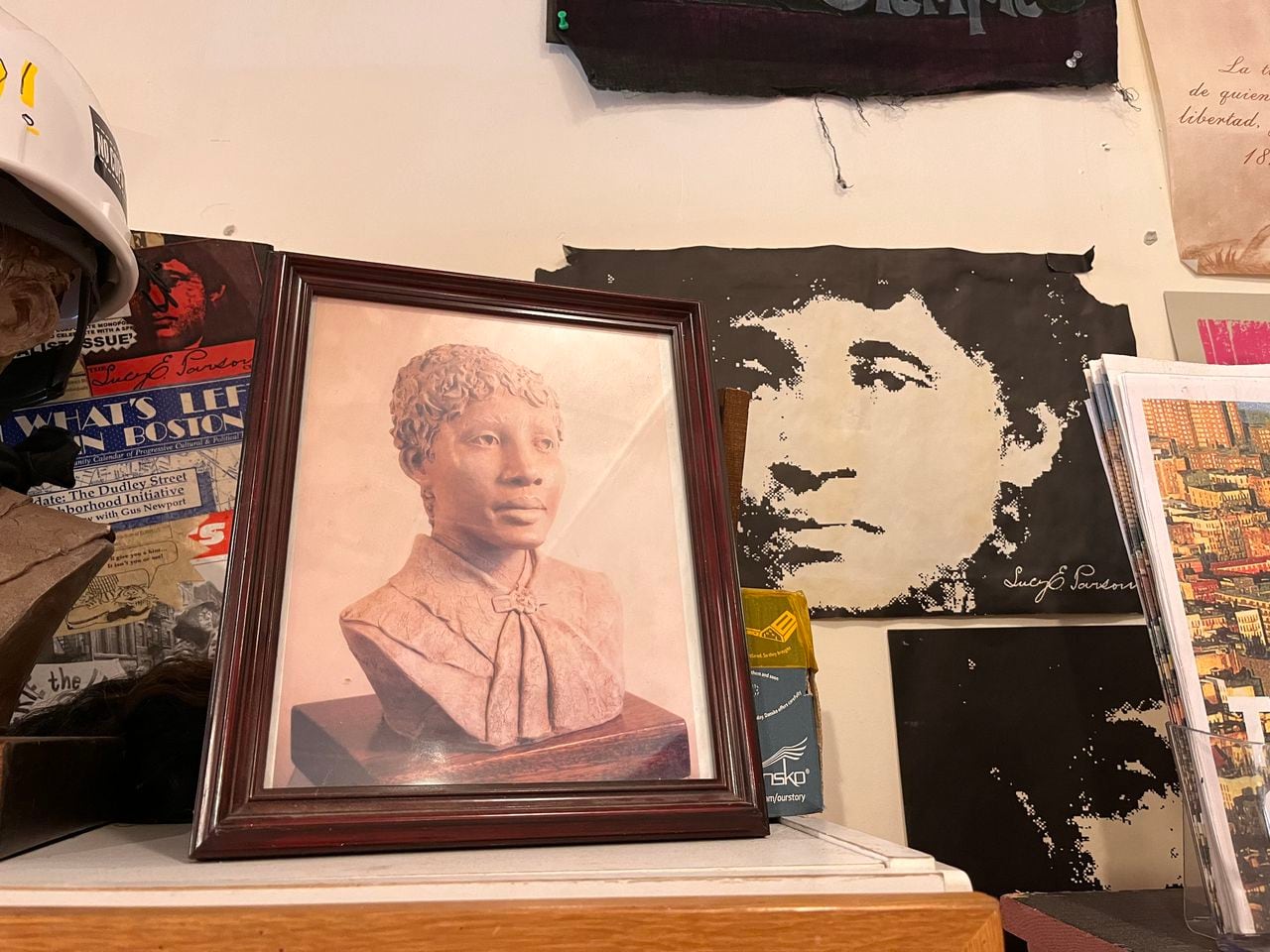
Portraits of Lucy Parsons, the former slave who “worked with all kinds of people on all kinds of social issues,” bookstore volunteer Magz told MassLive. Ryan Mancini/MassLiveRyan Mancini
T-shirts for sale show the face of the store’s most devoted supporter and funder, former University of Massachusetts, Boston professor George Salzman.
An activist himself, he moved to Oaxaca, Mexico after he retired in 1999 to help found Science for the People, “a group of radical activist scientists who (sought) to address the intersection of science and social issues,” according to the University of Michigan.
After his death in 2020, Magz said Salzman ordered a large part of his salary back to the store so that the center could buy the property. The COVID-19 pandemic shut the physical store down. But it still offered curbside book pickups, Magz said. Volunteers continued masking four years later while the store continued to thrive.
“I think [Salzman’s] support really kept this place afloat in a really big way [and] allowed us to do a lot of cool things,” she said. “Then when he passed away, he donated a large chunk of money to the store. People have been talking about buying a space — so we didn’t have to pay rent — for a long time, and with that money, they decided to buy this space around 2011.”
Foot traffic can largely depend on what books are being sought by buyers, she said. The store’s collection ranges from a myriad of social movements and topics, from decolonization to Black liberation, from ecology to Chicanx history, and from indigenous history to feminism and women’s studies.
“We try to focus on studying the social movements of oppressed people, of colonized people, all kinds of marginalized people and specifically their political movements outside of a frame of identity politics that fits into the (diversity, equity and inclusion) lens that is so popular in corporate America,” Magz said. “Instead focusing on how they tried to challenge power systems of patriarchy, of capitalism, of imperialism.”
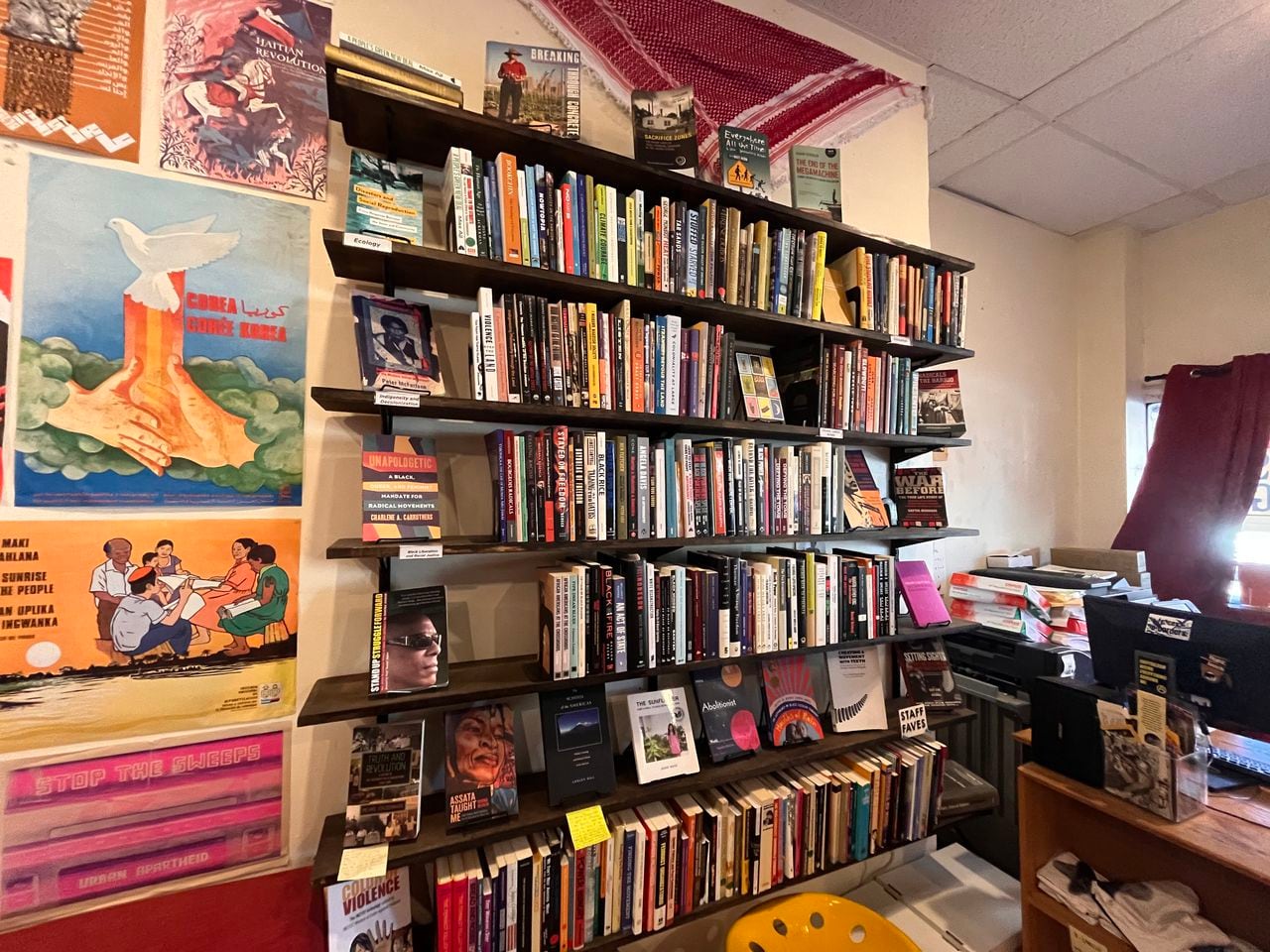
Books on decolonization, indigenous movements against the North Dakota Keystone Pipeline and biographies on 1960s civil rights leaders flood some of the shelves of the Lucy Parsons Center. Ryan Mancini/MassLiveRyan Mancini
Notable authors include the best-selling Howard Zinn, author of “A People’s History of the United States;” Miss Major Griffin-Gracy, a transgender rights activist and author who visited the bookstore for an event on Nov. 16. Other authors include activist Angela Davis, journalist Eduardo Galeano and the late educator David Graeber, known for his analysis of meaningless jobs and business structures in the book “Bullsh*t Jobs.”
- Read more: Granny’s Baking Table in Springfield will feature new independent bookstore this holiday season
The store has also hosted talks with authors, including Sarah Ahmed, who wrote “The Feminist Killjoy Handbook”; Eric Stanley, author of “Atmospheres of Violence: Structuring Antagonism and the Trans/Queer Ungovernable”; and Jimmy Dunson, writer of “Building Power While the Lights are Out: Disasters, Mutual Aid, and Dual Power.”
“I’m a slow reader, myself,” Magz said. “But I definitely find when I’m organizing outside of the LPC, I absolutely tap on the stuff that I learn through the projects and the resources at the LPC. I think that’s definitely true of other people too. Where this center really shines is not just in the books but when the books meet the people and the people meet each other.”
An inventory working group consisting of volunteers works together to evaluate what books to sell, including ones that could be popular with organizers. This follows the bookstore’s model of having a core strategic team, made up of 20 regular volunteers and a pool of 30 people who “help now and again,” Magz said.
- Read more: She ordered ‘I’m Glad My Mom Died,’ ‘Fleabag;’ bookstore clerk in Cambridge sent heartfelt message
Along with author events, the bookstore has been a space for musical performances and talks with directors, including one with filmmaker Steven de Castro about his 2017 documentary “Revolution Selfie.” The bookstore has promoted demonstrations across parts of Boston. Photos posted on the store’s Instagram page of demonstrators typically blur or mask their faces, also a means of protecting them from doxing or workplace retaliation, Magz said.
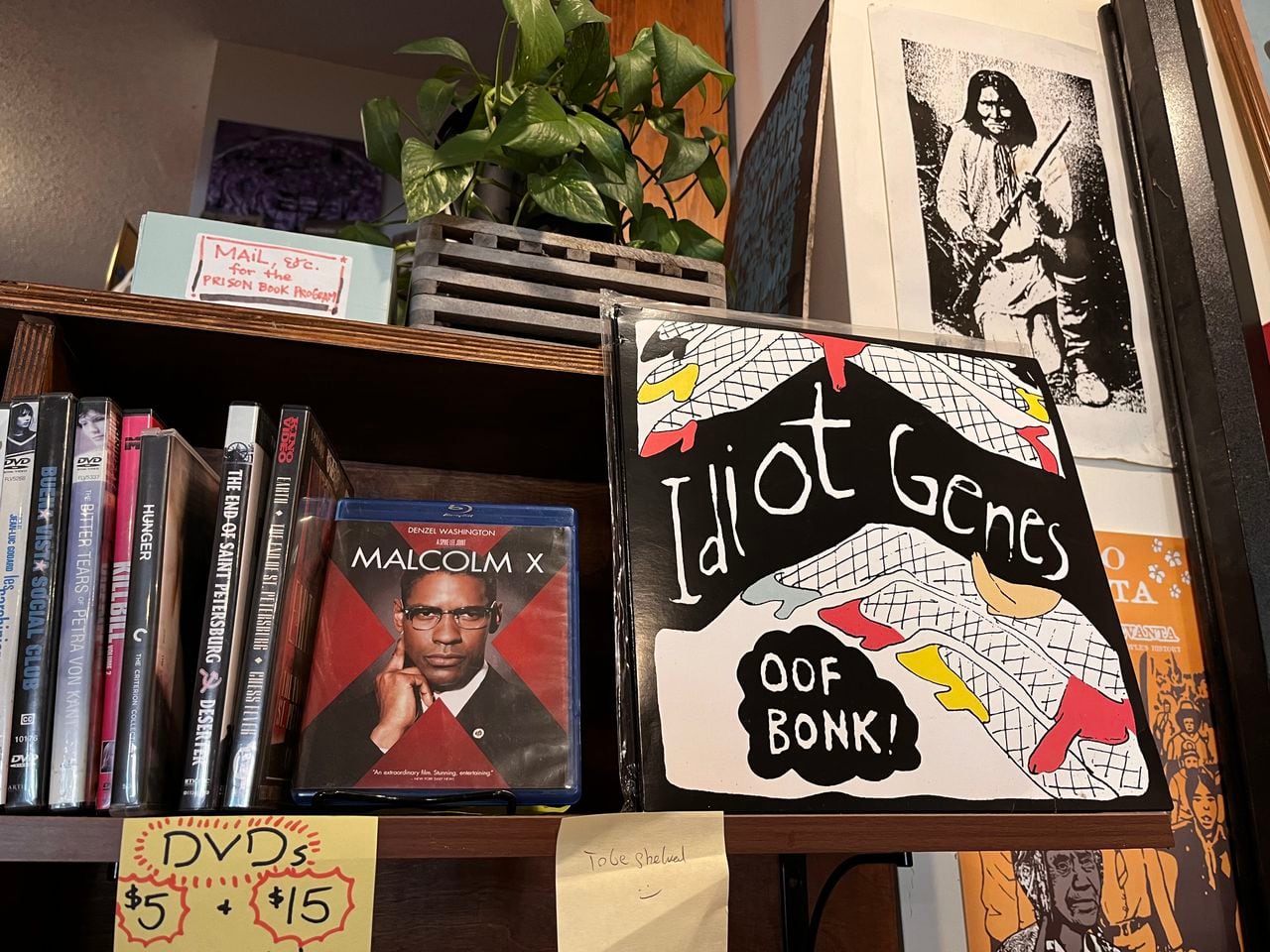
The bookstore also provides visitors with free magazines on organizing efforts and political theory, as well as selling DVDs like the Spike Lee film “Malcolm X,” seen here flanked by a photo of the Apache leader Geronimo. Ryan Mancini/MassLiveRyan Mancini
“A lot of people talk about third spaces,” she said. “It basically means not your workplace, not your home — where else do you got to be? Libraries are the obvious answer, the thing that makes us different from a library is we’re embedded in social movements more explicitly and not surveilled by the government so directly.”
Movement organizing, “if you’re not careful, can feel like drudgery,” Magz said. But using a bookstore for a meeting space brings people into a “space of voluntary education for people who want to help and learn.”
“Having a physical space and a physical network of people that come to the same space and share their ideas and their work really counters that,” Magz said. “It means we’re always building these relationships that are the foundation of our work. It helps us fight isolation and burnout. Yeah, I love that about this space.”




